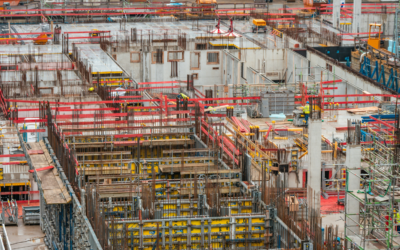Real estate development is one of the most dynamic and rewarding industries, offering both financial returns and the opportunity to transform communities.
But it’s not without its challenges. Whether you’re a first-time investor or an experienced developer, navigating the complexities of the development process requires a combination of expertise, strategic planning, and a deep understanding of the market.
This blog will guide you through the key strategies, processes, and areas of focus that drive success in real estate development. From understanding the development lifecycle to building a strong team and managing risks, we’ll cover everything you need to know to achieve your goals.

Understanding the Real Estate Development Process
Identifying Opportunities and Defining Objectives
Every successful development project begins with identifying prime opportunities that align with your financial objectives. This involves researching the market, determining demand, and selecting viable sites for future projects.
Many developers rely on a combination of spatial intelligence tools and local market insights to pinpoint high-growth areas.
Conducting Feasibility Studies
Real estate development is not without risks, which is why feasibility studies are crucial. These studies assess zoning laws, environmental factors, market potential, and financial viability.
For example, understanding zoning regulations can help determine whether a site is suitable for residential, commercial, or mixed-use development.
Managing the Development Process
Once a site is selected, the project’s success heavily depends on meticulous management. The development team tackles critical steps such as securing entitlements, obtaining permits, and managing the transition to the construction process.
Risk management strategies, like evaluating environmental risks, help mitigate potential setbacks during the project.
Building a Strong Development Team
Behind every successful real estate development project is a skilled and cohesive real estate development team.
Key Roles in a Development Team
-
Architects and Engineers ensure that the project’s design and infrastructure meet regulatory and aesthetic standards.
-
Market Consultants provide data-driven insights into demand and pricing.
-
Attorneys assist in handling contracts, permitting, and compliance with local laws.
-
Lenders and Financial Partners secure funding and oversee financial planning.
By partnering with experienced professionals familiar with local ordinances and municipal policies, you’ll create a streamlined process and reduce the risks associated with development.
Land Development and Acquisition
The Importance of Subdivisions
Subdivision is a fundamental part of transforming raw land into developed communities.
It involves legal approvals and physical preparation, such as infrastructure installation. Developers must often work closely with public authorities to ensure compliance with regulations.
Subdivisions are often a key component of new development, significantly impacting community growth and infrastructure.
Calculating Risk vs. Reward
Land acquisition, while risky, can yield substantial rewards. Using tools to model future population trends and evaluate infrastructure needs can mitigate risks and help you plan more effectively.
Construction Management and Oversight
During the construction phase, thorough oversight is critical to maintaining timelines and budgets. Real estate developers must effectively manage the construction phase to successfully develop projects from start to finish.
Coordinating the Team
The development team, led by a general contractor, oversees various subcontractors responsible for implementing different aspects of the project. For example, electrical, plumbing, and structural work must be carefully coordinated to avoid costly delays.
Ensuring Quality and Efficiency
Construction management doesn’t stop at scheduling. It also requires quality control measures to ensure that the project meets design specifications and safety standards. A successful project is completed on time without compromising quality.

Financing Real Estate Development Projects
Key Financing Options
Securing adequate financing is one of the most challenging parts of real estate development. Here are some common options developers consider:
-
Traditional Bank Loans for predictable interest rates and repayment schedules.
-
Private Equity investments for greater flexibility.
-
Crowdfunding Platforms for raising funds from multiple small investors.
-
Joint Ventures to share risks and resources with financial partners.
Equity financing is another crucial option, providing necessary funds to proceed with real estate development projects.
Building a Strong Financing Strategy
Many developers focus on creating a well-planned financing strategy that not only meets current needs but also secures contingency funds for unforeseen challenges.
Property Management and Operations
After construction is completed, effective property management is vital for maximizing a project’s profitability.
Day-to-Day Management
A property manager’s role goes beyond collecting rent. They ensure the property remains secure, compliant with regulations, and attractive to tenants or buyers. Effective property management ensures that the property remains attractive and functional for the end user.
Increasing Revenue
By analyzing the local market, successful property managers identify opportunities to boost ROI, such as offering additional amenities or reducing operational costs.
Mixed-Use Development and Urban Planning
Combining Uses for Sustainability
Mixed-use developments blend residential, commercial, and retail spaces to create vibrant communities focused on sustainability and convenience.
For example, developing a building with retail shops on the ground floor and residential units above can cater to diverse market demands.
Navigating Urban Planning
Urban planning involves collaborating with regulatory agencies, local stakeholders, and the community to ensure the project aligns with broader goals like reducing traffic congestion or improving green spaces.
Real Estate Development Projects: Case Studies and Best Practices
Learning from Experience
Studying successful projects can provide invaluable insights. For example, projects that overcame significant challenges in zoning, financing, or community opposition often highlight innovative solutions and strategies that others can replicate.
Applying Best Practices
Successful developers focus on balancing stakeholder interests, maintaining transparency, and adapting to changing market trends. For instance, using predictive analytics to decide on property pricing can give you an edge over competitors.

Overcoming Challenges and Mitigating Risks
Identifying Common Challenges
Real estate development projects often face numerous challenges that can impact their success. Navigating complex zoning laws, land-use regulations, and environmental regulations can be time-consuming and costly.
Financial risks are another significant concern, as real estate development projects often require substantial upfront investments, and market fluctuations can impact project viability.
Additionally, construction delays due to unforeseen site conditions, labor shortages, and material delivery issues can cause project delays and cost overruns. Market uncertainty, including changes in market demand, competition, and economic conditions, can also impact project feasibility and profitability.
Strategies for Risk Mitigation
To overcome these challenges, real estate developers can employ various risk mitigation strategies. Conducting thorough market research and analysis is crucial to identify potential risks and opportunities.
Developing a comprehensive project management plan that outlines timelines, budgets, and resource allocation can help keep the project on track. Building a skilled and experienced development team that can navigate complex regulatory environments and construction processes is essential.
Diversifying project portfolios can minimize exposure to market fluctuations and regulatory risks. Establishing strong relationships with stakeholders, including investors, lenders, and community leaders, ensures project support and buy-in, further mitigating risks.
Measuring Success and Evaluating Performance
Tracking KPIs
To measure a project’s success, developers set KPIs like cost per square foot, lease occupancy rates, and ROI timelines. Tracking these metrics helps refine strategies for future developments.
Data-Driven Adjustments
Regular performance evaluations based on reliable data allow developers to identify inefficiencies and pivot quickly, ensuring long-term profitability.
Future Trends in Real Estate Development
Looking ahead, real estate developers must adapt to emerging trends and technologies.
-
Sustainable Development will play a pivotal role, with a focus on energy-efficient designs and green building materials.
-
Tech-Driven Solutions like AI and big data will enhance decision-making, particularly in market analysis and risk evaluation.

Conclusion and Future Outlook
Summarizing Key Insights
In conclusion, real estate development is a complex and multifaceted process that requires careful planning, execution, and risk management. By understanding the key principles and practices outlined in this guide, real estate developers can navigate the development process with confidence and success.
Whether you’re a seasoned developer or just starting out, it’s essential to stay up-to-date with industry trends, best practices, and regulatory requirements to ensure project success and profitability.
Your Next Steps
Real estate development offers endless opportunities for innovation and growth, but it also demands careful planning and execution. To ensure your project’s success, you need partners who bring the expertise and insights necessary at every stage.
Contact South Coast Improvement Company today to discuss how we can help you achieve your real estate development goals. Schedule a consultation with our experienced team and get started on your next successful project.
Learn More About Real Estate
Expanding your knowledge of real estate development is crucial for staying competitive and making informed decisions. Below is a list of credible resources to help you deepen your understanding of the industry:
-
National Association of Realtors (NAR) – A comprehensive resource for market trends, research reports, and real estate news. Visit their website here.
-
Urban Land Institute (ULI) – Offers invaluable information on sustainable development, urban planning, and market forecasting. Explore ULI resources here.
-
Building Owners and Managers Association (BOMA) – Learn about property management best practices and industry benchmarks. Learn more here.
-
U.S. Department of Housing and Urban Development (HUD) – Access government-backed data and guidelines on housing policy and community development. Visit HUD here.
-
The Real Deal – Stay updated with the latest real estate news, market trends, and investment insights. Check out The Real Deal here.
-
National Multi Housing Council (NMHC) – Gain insights into rental housing trends, policy advocacy, and market analysis. Explore NMHC resources here.
-
American Planning Association (APA) – Discover tools and resources for urban planning and community development. Visit APA here.
-
CoStar Group – Access comprehensive commercial real estate data, analytics, and insights. Learn more about CoStar here.
-
Zillow Research – Find housing market data, economic trends, and housing affordability studies. Visit Zillow Research here.
By leveraging these resources, you can stay informed and make better strategic decisions for your real estate development projects.
View Our Work
Aspen Dental
Partnering with The Aspen Group on the construction of a new Aspen Dental facility that’s functional & welcoming for patients & staff alike. South Coast Improvement Company was awarded the construction of a new Aspen Dental facility in Killingly, CT. The...
Springhouse Senior Living – HumanGood
Designed to enhance comfort & functionality. South Coast Improvement company was hired by HumanGood for an interior and exterior renovation at Springhouse Senior Living. Our skilled teamtransformed the 2nd through 5th floor common areas into brighter, more...






